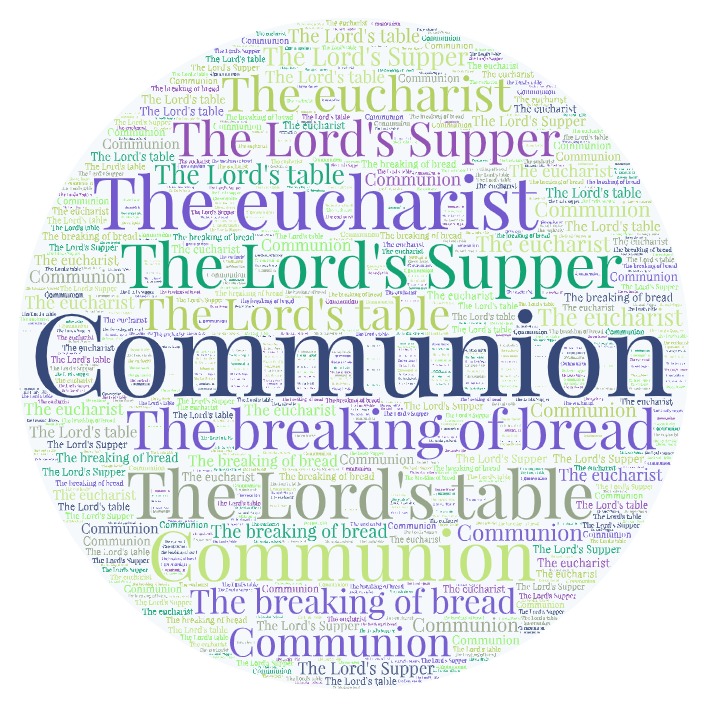
TL;DR:
A South Indian pastor faces a tense communion service when an inter-caste couple, Ramu and Kamalamma, arrive for worship after marrying against family and cultural expectations. Older, upper-caste members demand that the pastor deny communion to the couple, calling their marriage illegitimate. The pastor must decide whether to serve communion amid shouting and division in the congregation.

How can church leaders guide congregations through the rocky waters of cultural change without being overwhelmed by the storms that arise?
As Pastor Prabhakar looked at the angry men shouting at each other, he wondered whether he should proceed with the Lord's Supper (called Holy Communion in some denominations). And how should he deal with the fundamental issue that had divided his congregation? Older men in his congregation had demanded that he not offer the bread and the cup to Mr. and Mrs. Ramu Rajendra. If, on the other hand, he refused to serve the young couple, many of the younger men had said they would leave the church.
The problem's roots went deep in India's culture. Pastor Prabhakar's two-hundred-member church in South India was a multi-ethnic congregation. About half of the congregation came from a high-ranked caste group. The rest belonged to groups that were considered polluted laborers ("shudras"). They were at the bottom of the caste scale. Although the caste system had been legally outlawed in the 1950s, caste feelings occasionally surfaced in the church.
Among the church members were Mr. and Mrs. Bhim Rajendra. They were a well-to-do upper-caste couple who had three daughters and a son, Ramu. Ramu had his Master's degree in English.
Because Ramu was a good musician, he had become the choir director at the church. At the rehearsals, he struck up a friendship with Kamalamma, the beautiful daughter of Mr. and Mrs. Devadas. The two young people fell in love. When Ramu's parents noticed the developing relationship, they tried to break it up. They pointed out to Ramu that Kamalamma came from a poor and low-caste family. The young man's parents were unsuccessful at ending the relationship, and at a summer leadership camp, Ramu and Kamalamma decided they would marry.
After they returned home from the retreat, Ramu and Kamalamma went to the pastor, asking him to marry them. In respect of long-standing Indian traditions, he told them he would do so only if they had the support of their parents. While Kamalamma's parents agreed to the wedding, the would-be groom's parents remained adamantly opposed. So, the pastor declined to perform a wedding ceremony.
Not long afterward, Ramu got a job in a nearby town and moved into a rented house there. Then, one day, he and Kamalamma went to court and registered their marriage (similar to being married before a justice of the peace in the USA). When word got back to Ramu's parents that he and Kamalamma had done that, they barred the young couple from their home.
The church was divided on the role that parents should play in selecting a spouse. Many older people objected to the "love marriages" that were taking place in the cities and to the idea of "register marriages". Many of the younger people sided with the couple, noting that they seemed happy together.
Today, two months later, Ramu and Kamalamma were visiting their village on a Sunday. They came to the morning church service. It was Communion Sunday. At the outset of the service, some leading members privately asked the pastor not to even let the young couple attend the service because they were openly "living in sin." The pastor refused to send them away.
After his sermon, the pastor asked believers who were in the right relationship with God and ready to receive the sacrament to remain in the sanctuary. Ramu and Kamalamma stayed. Seeing them still there, some older men rebelled and asked the pastor not to serve communion to the couple. In response, some younger men loudly argued that the church had no right to condemn the young couple.
Pastor Prabhakar had to shout to get the attention of his angry congregation. When they were finally quiet, he said . . .
This case study is a revised version of one appearing in Case Studies in Missions, edited by Paul and Frances Hiebert, Baker Book House. This case study may be reproduced only upon payment of a 35-cent royalty per copy to Baker Book House, P.O. Box 6787, Grand Rapids, MI 49516 USA
Help with processing a case study
-- Howard Culbertson, hculbert@snu.edu

The eligibility to take communion, also known as the Lord's Supper or Eucharist, varies depending on a denomination's or church's beliefs and practices. Having said that, here are five principles commonly useed:
What does participating "unworthly" in communion mean?